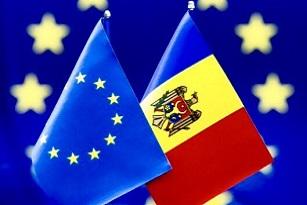
At the occasion of Prime Minister’s visit to Brussels, the European Union and the Republic of Moldova signed three Financing Agreements to implement projects with the European Union contribution worth €40.25 million that will bring tangible benefits to the lives of citizens across the country.
This follows the resumption of Budget Support payments to Moldova as announced on 23 July 2019, following progress made over the last weeks by the government of Moldova in the respect of democratic principles and fight against corruption.
Johannes Hahn, Commissioner for European Neighbourhood Policy and Enlargement Negotiations commented: “These programmes will bring comprehensive support across key sectors in order to deliver what the citizens of Moldova deserve - clear and tangible benefits to their lives. This is yet another important signal of EU’s strong commitment to support Moldova in its progress towards a democratic and corrupt-free state.”
The three EU programmes will provide support in the following areas:
- Support to socio-economic development of the focal regions – Ungheni and Cahul. The support programme, worth €23 million, will contribute to the creation of jobs and value chains, provide support to local SMEs, local actors and civil society and fund the development of small-scale infrastructures. This will help boost local social-economic development and reduce the gap between Chisinau and the regions of the Republic of Moldova. It will encourage local governance, involving civil society, private sector and ultimately citizens in decision-making. Mayors of these regions have publically committed to the principles of good governance, including fight against corruption.
- The EU will contribute to the prevention and fight against corruption with € 8 million programme aimed at increasing the level of citizens’ participation in the decision making and strengthening anti-corruption mechanisms.
- The EU will support implementation of the EU-Moldova Association Agreement through the following two programmes worth € 9.25 million:
- The EU will promote gender equality and women’s empowerment through strengthened implementation of gender mainstreaming in local public policies and promote combating domestic violence affecting women and children.
- The EU will also further promote the international exchange of students through the Erasmus+ programme and fund more mobility opportunities for Moldovan researchers (up to now 915 students and academic staff members from Moldova have been mobile to Europe), with the aim to further scientific excellence in Moldova and increase their competitiveness in EU programmes such as Horizon 2020.
The implementation of these programmes will start in the coming weeks in cooperation with key partners on the ground, to deliver real impact and ensure full benefits of EU support.
Background:
Under the same 2018 financial package to Moldova, the EU also committed € 10 million for the confidence building measures in support of peaceful settlement of the Transnistrian conflict. The programme helps increase confidence between Chisinau and Tiraspol through initiatives involving local authorities, civil society organisations and other stakeholders from both sides of the Nistru River. Implementation of this programme started in the beginning of 2019.
Details
- Publication date
- 24 July 2019
- Author
- Directorate-General for Neighbourhood and Enlargement Negotiations
